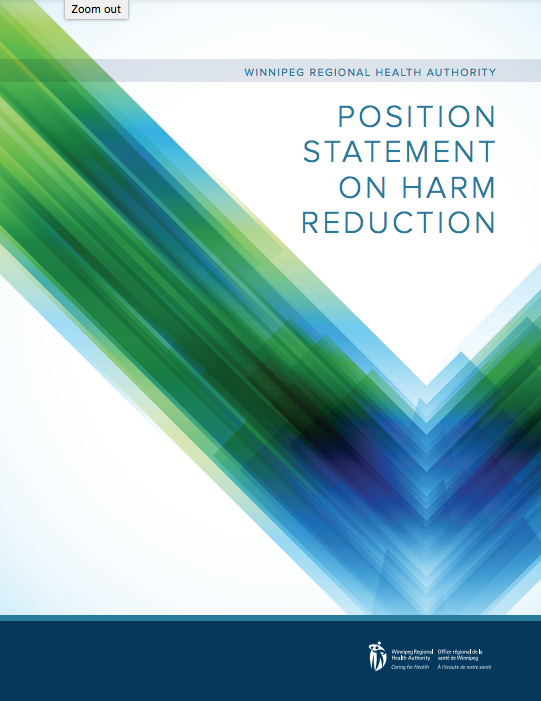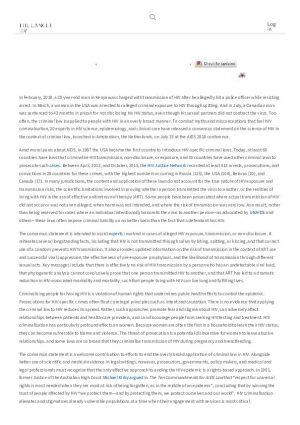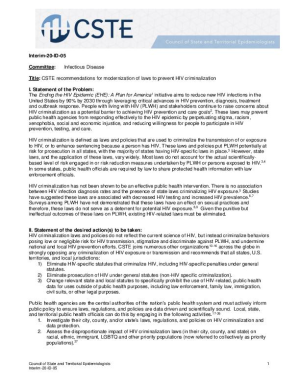Acknowledges the harms caused by stigma and criminalisation. In particular, it acknowledges that the harms of criminalisation are borne disproportionally by Indigenous peoples in Canada. The Statement recognises that while people make their own health decisions, these decisions are only one factor influencing health outcomes.
What the experts say
Other health/policy organisations
Many domestic health and policy organisations have issued public statements recognising the negative impact of HIV criminalisation on public health and human rights.
CSTE Recommendations for Modernization of Laws to Prevent HIV Criminalization
In October 2020, Council of State and Territorial Epidemiologists' Executive Board unanimously approved an interim position statement presenting their recommendations for Modernisation of Laws to Prevent HIV Criminalisation. CSTE strongly opposes any criminalization of HIV exposure or transmission and recommends that all states, U.S. territories, and local jurisdictions eliminate HIV-specific statutes that criminalise HIV, eliminate prosecution of HIV under general statutes and change relevant state and local statutes to specifically prohibit the use of HIV-related, public health data for uses outside of public health purposes.
Attitudes of infectious disease doctors and epidemiologists at AIDS centres towards the criminalization of HIV in the Russian Federation
Survey Conducted to examine the attitudes of infectious disease specialists and epidemiologists at AIDS Centres towards the criminalisation of HIV in Russia.
- Alternative links
- Russian




